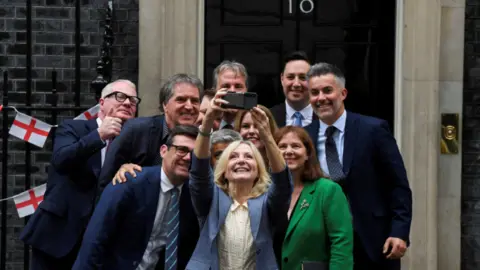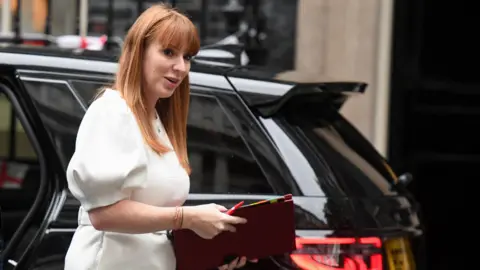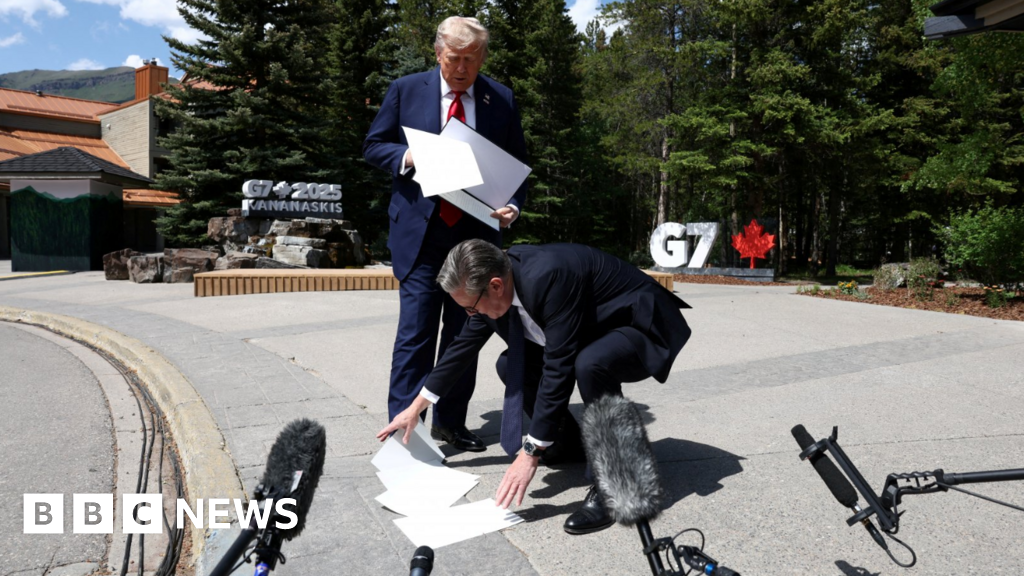ARTICLE AD BOX
16 minutes ago
By Alex Forsyth, Political correspondent

 Reuters
Reuters
Last week England's mayors gathered at Downing Street
The way local government works might not sound like the most exciting thing on the government’s long to-do list, but Keir Starmer has decided it matters.
Why? Because the prime minister has made economic growth a priority, and it’s the government’s view that local leaders across England have a vital role to play in helping to achieve that.
So what’s the plan, and crucially: can it work?
At the moment devolution - the powers that have been handed down from Westminster to local authorities across England - is patchy.
Some areas, like Greater Manchester and the West Midlands, have elected mayors with control over things like housing, skills and transport which is meant to help them boost local growth.
Other areas are working on deals that would see powers handed down to groups of councils working together.
But the powers - and the funding - that have been handed down vary widely from place to place, and there are some parts of England that aren’t covered at all.
The Deputy Prime Minister, Angela Rayner, has written to councils in these areas that are described as “devolution deserts” inviting them to work with the government on plans to give them more power in their local areas.
The claim is that those with “skin in the game” can make better decisions over what’s needed in their area.
The idea is broadly welcome across the local government sector, but the devil will be in the detail and it won’t be without difficulty.
The last Conservative government embarked on a programme of devolution, but it often ran into long and complex negotiations over geography or governance - exactly which bodies in which areas should have power and how they should be accountable to the public.
The Labour government has made clear it likes the idea of elected mayors; Keir Starmer even invited the existing mayors to Downing Street in his first week in office.
But not every area thinks a mayor is the right solution.
In Bristol residents voted to scrap the idea of an elected mayor during a referendum in 2022.

 Reuters
Reuters
Angela Rayner became the housing, communities and local government secretary, after Labour won the 4 July election
The County Councils Network, which represents some of England’s largest local authorities often in rural areas, welcomes the government’s approach to devolution.
However, it says that while “there are benefits to mayors or directly-elected leaders, the reality is they are unsuitable for some county areas” - adding that not having one should not inhibit a region’s ambition.
In her letter to councils, Angela Rayner has made clear the government sees the advantages of metro mayors but won’t “force” them on any local area, instead inviting regions to come up with devolution proposals by the end of September.
The government is clearly pitching partnership to a sector that has often felt overlooked, but delivering devolution hasn’t always been simple.
And there’s another issue too.
The financial strain facing local authorities is well-documented, with huge pressure on budgets for social care, children's services and housing in particular.
Ms Rayner, who is also the housing, communities and local government secretary, says in her letter that the cabinet understands the pressure many councils are under and will ensure they “have the resources to deliver new devolved powers and functions.”
Again, the devil will be in the detail.
The government’s argument is that boosting economic growth will allow investment in public services, and clearly ministers believe giving more power to local leaders to make decisions for their area is a key part of that.
But finding a way to make it work in practice for a sector that’s already under strain is what will count.

 11 months ago
36
11 months ago
36








 English (US) ·
English (US) ·